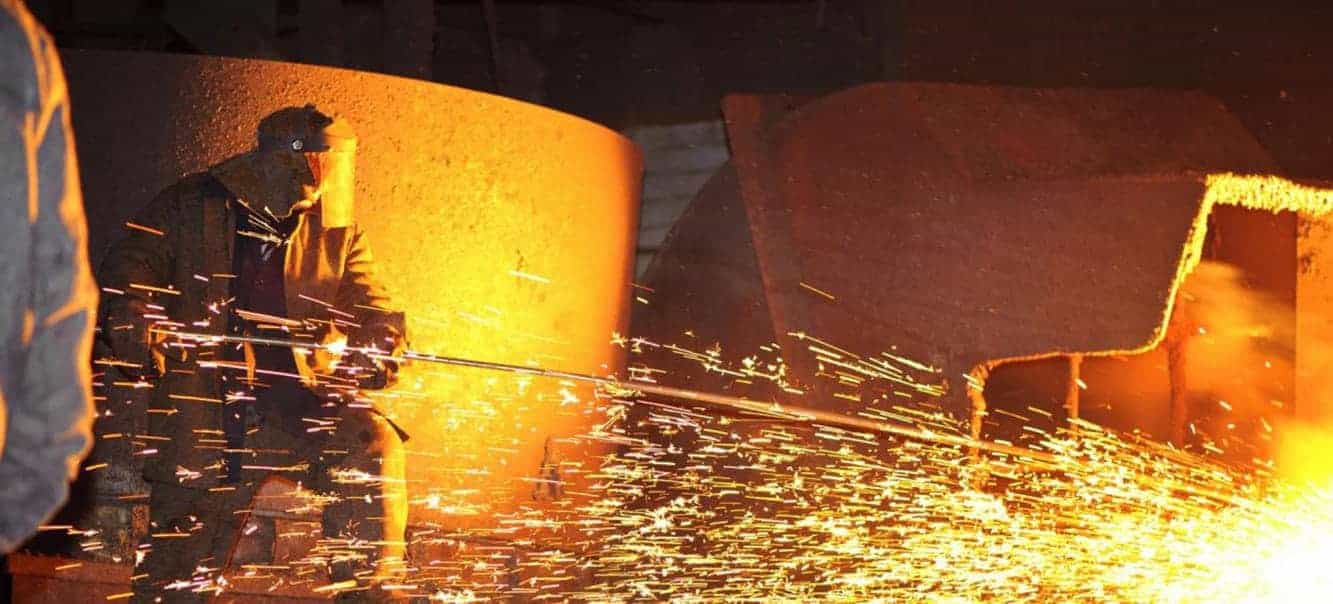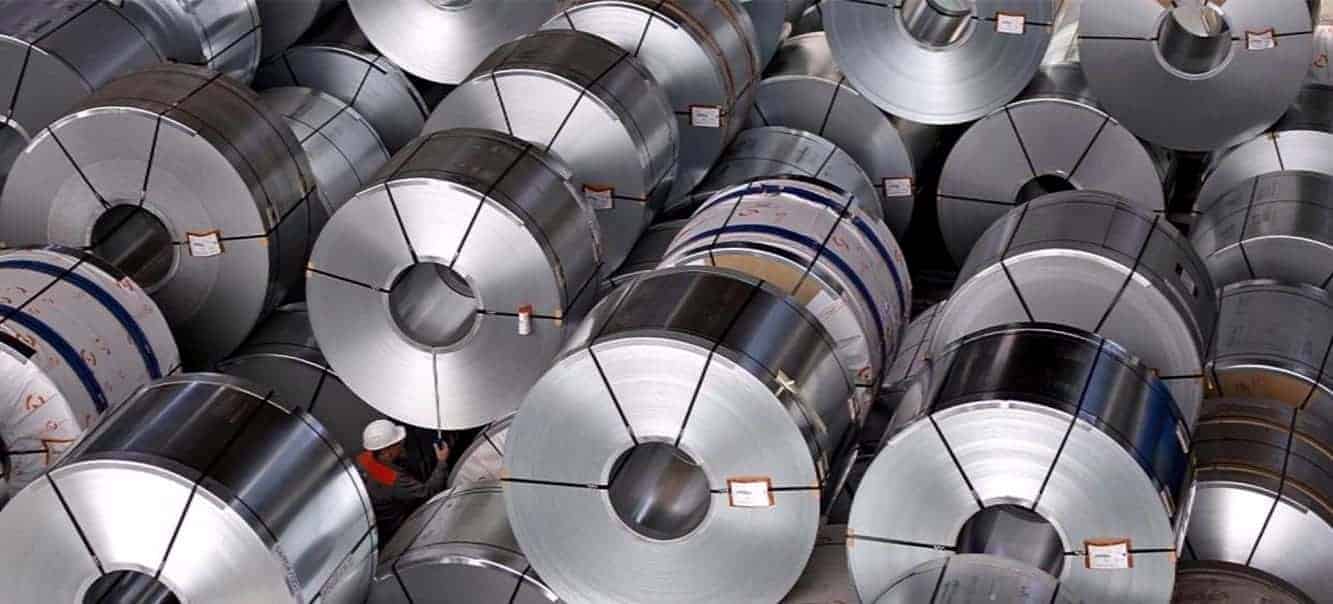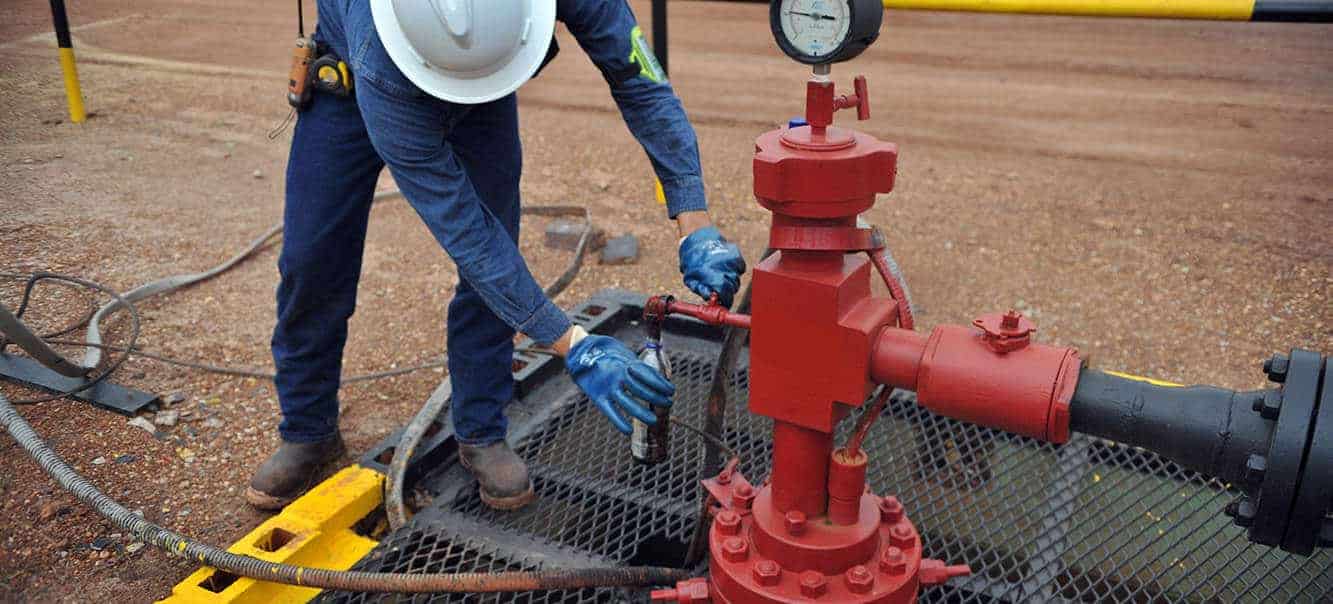METALS AND ENGINEERING SECTOR OUTPUT INCREASE THREATENED BY A TUMBLING BUSINESS CONFIDENCE AND EXCHANGE RATE, SAYS SEIFSA
JOHANNESBURG, 11 SEPTEMBER 2018 – The Steel and Engineering Industries Federation of Southern Africa (SEIFSA) welcomes the third consecutive increase in output in the metals and engineering sector in July 2018, but cautions against increasing cost of inputs which have the ability to squeeze margins, constrict production and further reduce the cluster’s contribution to gross domestic product (GDP), SEIFSA Chief Economist Michael Ade said today
Speaking after the release of metals and engineering production figures, Dr Ade said although the annual growth in output is comparatively lower than that of June 2018, the data is encouraging as production is still trending positively. He said the performance in July – which officially kick-starts quarter three – w against the backdrop of generally subdued domestic demand triggered by the technical economic recession and a plummeting exchange rate is welcome.
“Given that the contribution of the broader manufacturing sector to quarter-two GDP was lower than expected, the performance by its important cluster of industries will provide more impetus for a subsequently higher manufacturing contribtion to domestic growth,” Dr Ade said.
In line with the broader manufacturing sector, which increased by 2,9% in July 2018, the latest preliminary seasonally-adjusted data released by Statistics South Africa today captures an increase in output in the M&E cluster in July 2018, when compared with July 2017. After accounting for heterogeneity through the sectoral contributionss, the data indicated that production in M&E sub-components increased by 3,4% on a year-on-year basis, and by 3,2% on a month-on-month basis.
Dr Ade said that despite welcoming the slow progression in production, SEIFSA notes that specific concerns which have the ability to inhibit the contribution of the cluster to quarter-three GDP still remain. These include high prices of both domestic and imported intermediary inputs, volatile variable costs (including fuel and energy costs) and exchange rate.
Dr Ade said although a weak exchange rate favours exports, the net effect after accounting for higher intermediate input prices can significantly offset gains from exports. He said the tumbling Rand/Dollar exchange rate, which weakened to as high as R15.24/$ today, adds to the cost of imported inputs and is generally counter productive.
“Moreover, with business confidence currently below the neutral level of 50, which is a rare and perturbing development, businesses may be compelled to pass on cost increases, thereby rendering their products less price competitive,” Dr Ade said.
Issued by:
Ollie Madlala
Communications Manager
Tel: (011) 298 9411 / 082 602 1725
Email: ollie@seifsa.co.za
Web: www.seifsa.co.za
TRANSFORMATION IS ONE OF THE TOPICS TO BE DISCUSSED AT THE FOURTH SOUTHERN AFRICAN METALS AND ENGINEERING INDABA
Johannesburg, 9 September 2018 – The black industrialist programme championed by the Department of Trade and Industry will come under discussion during the fourth Southern African Metals and Engineering Indaba, with a special focus on the progress made to date.
The indaba, scheduled to take place at the IDC Conference Centre in Sandton, will bring together business leaders, entrepreneurs, policy makers and labour leaders to deliberate on ways to stimulate manufacturing – but especially the metals and engineering sector – in the SADC region.
Steel and Engineering Industries Federation of Southern Africa (SEIFSA) Chief Executive Officer Kaizer Nyatsumba said inclusive economic growth was in the best interest of all South Africans, and not only those who were previously excluded from meaningful participation in the economy.
The Black Industrialist Programme is aimed at, placing particular emphasis on the need to strengthen and increase black participation and enhance entrepreneurial dynamism in the mainstream economy, particularly in manufacturing.
But just how much has the Black Industrialist Programme achieved since its launch three years ago? This is the question that will be under the spotlight on the second day of the fourth Southern African Metals and Engineering Indaba..
“This session will provide a platform for a critical assessment of what radical economic transformation means for the metals and engineering sector and just how much progress has been made in implementing the Black industrialist Programme,” Mr Nyatsumba said.
Taking part in this plenary session will be Black Business Council CEO Kganki Matabane, Department of Trade and Industry Acting Deputy Director-General Thandi Phele, the Industrial Development Corporation’s Head of Basic Metals and Mining, Mazwi Tunyiswa, and Weir Minerals Africa Marketing Director Rajen Govender.
Mr Nyatsumba said with poverty and inequality rife in the country and still predominantly defined along pre-1994 racial lines, there was a growing need for greater emphasis to be placed on levelling the economic playing field, with deliberate policies adopted by the Government to advance those who were previously excluded from the mainstream of the economy.
He said companies with foresight should embrace and actively implement transformation now, and not wait for radical economic transformation to force them to do so or to push them out of business.
Whether called "the second phase of the transition" or "radical economic transformation", this posture emphasises the need for more work to be done to ensure that black South Africans — Africans, coloureds and Indians — are brought into the mainstream of the economy.
Mr Nyatsumba said that while some may not readily acknowledge it, the fact remained that it was vitally important that all South Africans felt that they have a real and meaningful stake in the country’s welfare. He said addressing inequalities was not just the responsibility of the Government, and that the business community had to appreciate that transformation was also in its own long-term interests.
“Not only will it lead to a growing middle class that will ensure a bigger market for their products and services, but transformation also unlocks opportunities for companies to do business with the public sector, State-owned enterprises and companies that are protective of their high BEE ratings,” said Mr Nyatsumba.
Other topics that will feature prominently during the 2018 Indaba include:
- The Continental Free Trade Area: How Much Progress Has Been Made to Date?
- How much of the National Development Plan has been implemented – and is it still relevant?
- Exploring and Leveraging the Link Between the Metals and Engineering Sector and the Mining, Construction and Auto Manufacturing Industries
- Constraints to investing in the Metals and Engineering Sector and improving trade on the African continent
- Innovation and Excellence as Strategic Levers for Global Competitiveness
- Administered Prices As Factors Negatively Affecting South Africa’s International Competitiveness: Can we Change the Situation?
Among the high-profile speakers expected to address the conference are:
- Cabinet Ministers Dr Nkosazana Dlamini-Zuma, Dr Zweli Mkhize and Pravin Gordhan;
- Business leaders like Black Business Council CEO Kganki Matabane, ArcelorMittal General Manager: Africa Overland Alph Ngapo, Hazleton Pump International Managing Director Mathys Wehmer, Atlantis Foundries CEO Mervyn Moodley, Eskom CEO Phakamani Hadebe, Transnet CEO Siyabonga Gama, PWC Africa Director Andrew Shaw, National Association of Automobile Manufacturers of SA Director Nico Vermeulen and Master Builders Executive Director Roy Mnisi;
- Policy makers and civil service representatives like Department of Trade and Industry (Dti) Director-General Lionel October, and Dti Chief Director for Africa Multilateral Economic Relations Wamkele Mene;
- Representatives of global organisations like World Bank Group Lead Economist John Gabriel and International Finance Corporation Senior Investment Officer Paul Mukasa;
- Civil society leaders like Council for Scientific and Industrial Research CEO Dr Thulani Dlamini; Organisation Undoing Tax Abuse Executive Director Wayne Duvenage and Council for the Advancement of the South African Constitution Executive Secretary Lawson Naidoo; and
- Politicians like ANC Economic Transformation Head Enoch Godongwana, Democratic Alliance Shadow Minister for Trade and Industry Geordin Hill-Lewis and DA Shadow Minister for Public Enterprises Natasha Mazzone.
For more details on the conference, please visit www.meindaba.seifsa.co.za.
Issued by:
Ollie Madlala
Communications Consultant
Tel: (011) 298 9411 / 082 602 1725
Email: ollie@seifsa.co.za
Web: www.meindaba. seifsa.co.za
PARTIES TO THE COUNCIL TAKE VOTE OVERWHELMINGLY TO GAZETTE AND EXTEND THE MAIN AGREEMENT
The extension of a bargaining council’s collective agreement is not unconstitutional. This view was upheld by Judge John Murphy on behalf of a full bench of the North Gauteng (Pretoria) High Court in the 2016 Free Market Foundation (FMF) v Minister of Labour & Others Judgment.
Section 32 of the Labour Relations Act (LRA) expressly empowers – indeed, requires – bargaining councils and the Minister of Labour to follow a specific procedure for extending bargaining council agreements.
In particular, these requirements are that:
- one or more registered trade union/s whose members constitute the majority of the members of the trade unions that are party to the bargaining council vote in favour of the extension, and
- one or more registered employers’ organisations, whose members employ the majority of the employees employed by the members of the employers’ organisations that are party to the bargaining council, vote in favour of the extension.
At an historic Metals and Engineering Industries Bargaining Council (MEIBC) meeting of all the parties held today, the following vote was taken:
- The five-trade unions that are party to the council – namely, Mewusa, Numsa, Saewa, Solidarity and Uasa – all supported the extension of the Main Agreement to non-parties; and
- The 21-SEIFSA affiliated Employer Organisations and the Plastics Converters Association of South Africa (PCA-SA), whose membership collectively employ the overwhelming majority of the employees employed by all the members of the employers’ organisations that are party to the bargaining council, voted in favour of extension.
According to the latest Department of Labour determination of the representativeness of the MEIBC issued in terms of Section 49 of the LRA, of the 424 365 employees employed in the industry, a total of 277 602 (65,4%) of them are employed by the employers’ organisations that are party to the bargaining council. The SEIFSA-affiliated employer Associations alone represent 58%.
Collectively, the other employers’ associations represent 42% of the employees in the sector, broken down as follows:
- NEASA represents 19%,
- PCA-SA represents 11%,
- the South African Engineers and Founders Association represents 6%,
- the Confederation of Employers Organisation represents 4%,
- the Federated Employers Organisation of SA represents 1%, and
- the South Africa United Commercial & Allied Employers Organisation represents 1%.
In the case of a section 32 extension, where an agreement is negotiated and concluded by bargaining agents who represent and employ the majority of employees falling within the council’s coverage, the extension of a bargaining council agreement is seen as a reasonable and necessary mechanism of sectoral collective bargaining.
Together, the 21 SEIFSA-affiliated Associations – which represent small, medium and big businesses across the sector – and the Plastics Converters Association of South Africa (PCA-SA) account for 69% of all employees employed by all the employer organisations on the bargaining council.
The Collective Main Agreement concluded on 23 August 2017 between the 21-SEIFSA affiliated Employer Organisations and the industries’ five trade unions, for the period 1 July 2017 to 30 June 2020, will now be submitted to the Department of Labour with a request for the Minister of Labour to gazette the Agreement and make it legally binding on all employers falling within its scope (excluding the plastics sector as defined) and scheduled employees in the industry.
AS SOUTH AFRICA CATAPULTS INTO A TECHNICAL RECESSION, CONCERNS ABOUT THE MANUFACTURING SECTOR’S CONTRIBUTION TO ECONOMIC GROWTH REMAIN, SAYS SEIFSA
Johannesburg, 4 September 2018 – The Steel and Engineering Industries Federation of Southern Africa (SEIFSA) is concerned about the poor performance of the economy and the contribution of the broader manufacturing sector to economic growth.
Speaking after the release of the latest gross domestic product (GDP) figures by Statistics South Africa (StatsSA) today, SEIFSA Chief Economist Michael Ade said growth in the manufacturing sector was, notably, largely nondescript in an economic performance which recorded a second consecutive decrease in GDP growth in quarter two of 2018, technically plunging the economy into a recession.
South Africa’s real GDP decreased by 0,7% in the second quarter of 2018, following a seasonally-adjusted 2,6% quarter-on-quarter (q/q) decrease recorded in quarter one of 2018. The manufacturing sector’s performance was equally disappointing, with the sector contributing 0,0% to growth in GDP in the second quarter.
“South Africa is officially in a recession amid prevailing challenges. The difficulties remind us all of the fact that there remains much work to be done in order to revive a spluttering South African economy. Since the first quarter, consumer sentiment has remained weak, with the Bureau for Economic Research’s consumer confidence index slowing to 22 points in the second quarter of 2018, from 26 points in the first quarter, indicative of a subdued local demand environment, Dr Ade said.
He added that given that the demand for most of manufacturing goods is derived from a strong consumer demand base, the slowing consumer confidence is worrying. He said that the situation was worsened by low investment levels and the generally high unemployment rate which has seen most people still struggling to find jobs.
“The economy is still weak and, at 5,1%, the headline inflation is near the upper band of 6%, disproportionately affecting the poor. However, with inflation still within the target band, the likelihood that South African Reserve Bank officials will raise interest rates at their next scheduled meeting in two weeks’ time is low. Rather, the opposite is true in order to put money back into the pockets of consumers and boost demand,” Dr Ade said..
He added that the weak exchange rate presents the biggest challenge to businesses in the manufacturing sector, which is very crucial to the domestic value chain, with linkages to the primary and tertiary sectors. He said the consistent fuel price increase – with the next increase planned for tomorrow (Wednesday) – and the high cost of imported inputs by businesses bore testimony to the negative effects of the weak exchange rate. He also decried the negative impact of logistic costs and administrative bottlenecks, which inhibit exporting businesses from taking advantage of the weak exchange rate.
“The economy desperately needs a jump-start. Distressed companies should be assisted and policy makers should urgently and effectively implement existing initiatives and policies. Five months into its announcement, the modalities around a R500 million incentive aimed at assisting companies in the metals and engineering cluster is still awaiting finalisation, while businesses are in a quagmire. The laggard translation of policies to concrete implementation plans are a serious cause for concern,” said Dr Ade.
Dr Ade stressed that swiftness in policy implementation, monitoring and evaluation is necessary to instill trust in the Government and to boost both business and investor confidence.
“This is important, given that a flourishing manufacturing sector is important in revamping growth in GDP and creating more jobs,” he concluded.
Issued by:
Ollie Madlala
Communications Consultant
Tel: (011) 298 9411 / 082 602 1725
Email: ollie@seifsa.co.za
Web: https://meindaba.seifsa.co.za/
SEIFSA is a National Federation representing 23 independent employer Associations in the metals and engineering industries, with a combined membership of 1600 companies employing around 200 000 employees. The Federation was formed in 1943 and its member companies range from giant steel-making corporations to micro-enterprises employing fewer than 50 people.
PARTIES TO THE MEIBC VOTE OVERWHELMINGLY FOR GAZETTAL AND EXTENSION OF 2017-2020 METALS AND ENGINEERING MAIN AGREEMENT
Johannesburg, 4 September 2018 – Parties to the Metals and Engineering Industries Bargaining Council (MEIBC) today voted overwhelmingly in favour of the extension of the three-year agreement reached in the metals and engineering sector in 2017.
During an historic meeting of the parties at the MEIBC this morning, during which all employer organisations registered with the council were in attendance:
- The five-trade unions that are party to the council – namely, Mewusa, Numsa, Saewa, Solidarity and Uasa – all supported the extension of the Main Agreement to non-parties; and
- The 21-SEIFSA affiliated Employer Organisations and the Plastics Converters Association of South Africa (PCA-SA), whose membership collectively employ the overwhelming majority of the employees employed by all the members of the employers’ organisations that are party to the bargaining council, voted in favour of extension.
Steel and Engineering Industries Federation of Southern Africa (SEIFSA) Operations Director Lucio Trentini said that the employer parties supporting the extension of the 2017-2020 Agreement represented 65% of the employees working for companies registered with the MEIBC, with SEIFSA members alone representing 58% of those employees.
Mr Trentini revealed that the latest determination of the representativeness of the MEIBC issued by the Department of Labour in terms of Section 49 of the Labour Relations Act had shown that of the 424 365 employees in the industry, a total of 277 602 (65,4%) worked for the employers’ organisations that are party to the bargaining council.
“The SEIFSA-affiliated employer Associations alone represent 58% of those employees,” he said.
According to the Department of Labour’s determination of representatives, NEASA represents 19% of employees working for companies registered with the council, the Plastics Converters’ Association of SA represents 11%, the South African Engineers and Founders Association represents 6%, the Confederation of Employers Organisation represents 4%, the Federated Employers Organisation of SA represents 1%, and the South Africa United Commercial & Allied Employers Organisation represents 1%.
“In the case of a section 32 extension, where an agreement is negotiated and concluded by bargaining agents who represent and employ the majority of employees falling within the council’s coverage, the extension of a bargaining council agreement is seen as a reasonable and necessary mechanism of sectoral collective bargaining,” said Mr Trentini.
He referred to the finding by Judge John Murphy, who had ruled, on behalf of a full bench of the North Gauteng (Pretoria) High Court in the 2016 Free Market Foundation (FMF) v Minister of Labour & Others Judgment, that the extension of a bargaining council’s collective agreement was legal, provided that one or more registered trade union/s whose members constitute the majority of the members of the trade unions that are party to the bargaining council vote in favour of the extension, and one or more registered employers’ organisations, whose members employ the majority of the employees employed by the members of the employers’ organisations that are party to the bargaining council, vote in favour of the extension.
During the MEIBC meeting this morning,
- The five-trade unions that are party to the council – namely, Mewusa, Numsa, Saewa, Solidarity and Uasa – all supported the extension of the Main Agreement to non-parties; and
- The 21-SEIFSA affiliated Employer Organisations and the Plastics Converters Association of South Africa (PCA-SA), whose membership collectively employ the overwhelming majority of the employees employed by all the members of the employers’ organisations that are party to the bargaining council, voted in favour of extension.
Together, the 21 SEIFSA-affiliated Associations – which represent small, medium and big businesses across the sector – and the Plastics Converters Association of South Africa (PCA-SA) account for 69% of all employees employed by all the employer organisations on the bargaining council.
Mr Trentini explained that the Collective Main Agreement concluded on 23 August 2017 between the 21 SEIFSA-affiliated employers’ organisations and the industries’ five trade unions, for the period 1 July 2017 to 30 June 2020, will now be submitted to the Department of Labour with a request for the Minister of Labour to gazette the Agreement and make it legally binding on all employers falling within its scope (excluding the plastics sector as defined) and scheduled employees in the industry.
Issued by:
Ollie Madlala
Communications Consultant
Tel: (011) 298 9411 / 082 602 1725
Email: ollie@seifsa.co.za
Web: https://meindaba.seifsa.co.za/
SEIFSA is a National Federation representing 23 independent employer Associations in the metals and engineering industries, with a combined membership of 1600 companies employing around 200 000 employees. The Federation was formed in 1943 and its member companies range from giant steel-making corporations to micro-enterprises employing fewer than 50 people.
NATIONAL DEVELOPMENT PLAN TO FEATURE PROMINENTLY AT THE SOUTHERN AFRICAN METALS AND ENGINEERING INDABA
Johannesburg, 3 September 2018 – Six years ago, the Government adopted the National Development Plan (NDP), a blueprint for how South Africa could eradicate poverty and reduce inequality by 2030 – with business and other stakeholders enthusiastically welcoming the initiative.
While the NDP drew criticism from some labour formations, many other stakeholders – among them the business community – hailed it as a solid foundation upon which inclusive economic growth could be achieved.
But, six years on, just how much of the plan has been implemented to date – and just how relevant does it continue to be? That is the burning question that Minister in the Presidency Dr Nkosazana Dlamini-Zuma, University of the Free State Visiting Professor JP Landman, Manufacturing Circle CEO Philippa Rodseth and Wits School of Governance Professor Patrick Bond will grapple with on the first day of the Fourth Southern African Metals and Engineering Indaba, which will take place on 2 -21 September at the IDC Conference Centre in Sandton.
“The NDP and its 18 strategic infrastructure projects (SIPs) held much promise for the country, but not much seems to have been done in terms of the actual implementation and South Africa – embattled by slow growth, unemployment and a continually widening gap between the rich and the poor – does not seem to be on the trajectory to eradicating poverty and reducing inequality by 2030,” Steel and Engineering Industries Federation of Southern Africa (SEIFSA) CEO Kaizer Nyatsumba said.
He said that it is against this backdrop that SEIFSA, as the conference organizer, felt it necessary to provide a platform for policy makers and other stakeholders to meet and spell out what has been done, where the bottlenecks to implementation have been and what needs to be done to move forward.
“We remain of the view that, if implemented correctly, the NDP and its SIPs have the potential to help South Africa turn its economic fortunes around. The Government’s expenditure on the projects would revive industries such as the construction and our very own metals and engineering, which have been in doldrums for years. We, as the business community, stand ready to work with the Government to contribute towards the successful implementation of the plan,” Mr Nyatsumba said.
Other topics that will feature prominently on the 2018 Indaba agenda include:
- The Continental Free Trade Area: How Much Progress Has Been Made to Date?
- Exploring and Leveraging the Link Between the Metals and Engineering Sector and the Mining, Construction and Auto Manufacturing Industries
- Constraints to investing in the Metals and Engineering Sector and improving trade on the African continent
- Radical Economic Transformation, the Black Industrialists Programme and the Metals and Engineering Sector
- Innovation and Excellence as Strategic Levers for Global Competitiveness
- Administered Prices As Factors Negatively Affecting South Africa’s International Competitiveness: Can we Change the Situation?
President Cyril Ramaphosa is billed to deliver the opening address. Among the high-profile speakers expected to address the conference are:
- Cabinet Ministers like Dr Zweli Mkhize, and Pravin Gordhan
- Business leaders like Black Business Council CEO Kganki Matabane, ArcelorMittal General Manager: Africa Overland Alph Ngapo, Africa House Director Duncan Bonnett, Africa@Work CEO Dinna Games, Hazleton Pump International Managing Director Mathys Wehmer, former Atlantis Foundries CEO Pieter du Plessis, Eskom CEO Phakamani Hadebe, Transnet CEO Siyabonga Gama, PWC South Africa Director Andrew Shaw, National Association of Automobile Manufacturers of SA Director Nico Vermeulen and Master Builders Executive Director Roy Mnisi;
- Policy makers and civil service representatives like Department of Trade and Industry (Dti) Director-General Lionel October, and Dti Chief Director for Africa Multilateral Economic Relations Wamkele Mene;
- Representatives of global organisations like World Bank Group Lead Economist John Gabriel and International Finance Corporation Senior Investment Officer Paul Mukasa;
- Civil society leaders like Council for Scientific and Industrial Research CEO Dr Thulani Dlamini; Organisation Undoing Tax Abuse Executive Director Wayne Duvenage and Council for the Advancement of the South African Constitution Executive Secretary Lawson Naidoo
- Politicians like ANC Economic Transformation Head Enoch Godongwana, Democratic Alliance Shadow Minister for Trade and Industry Geordin Hill-Lewis and DA Shadow Minister for Public Enterprises Natasha Mazzone; and
- Academics like University of Stellenbosch Social Justice Chair and former Public Protector Professor Thuli Madonsela
For more details on the conference, please visit www.meindaba.seifsa.co.za.
Issued by:
Ollie Madlala
Communications Consultant
Tel: (011) 298 9411 / 082 602 1725
Email: ollie@seifsa.co.za
Web: www.meindaba. seifsa.co.za
DECLINE IN SEASONALLY-ADJUSTED PURCHASING MANAGERS’ INDEX IS CONCERNING, SAYS SEIFSA
Johannesburg, 3 September 2018 - The Steel and Engineering Industries Federation of Southern Africa (SEIFSA) is concerned about the significant decline in the Purchasing Managers Index (PMI) released by Absa today, Economist Marique Kruger said today.
The seasonally-adjusted PMI declined from an encouraging 51,5 points recorded in July to 43,4 points in August 2018. This is the lowest level over 18 months, with a similarly low value of 43, 3 points recorded in July 2017.
“Despite a brief rebound in July 2018, there was a significant dip in the data, reflecting the inability of purchasing executives to sustain momentum in business activity in the broader manufacturing sector. Unfortunately, the datapoint places the headline PMI below the 50-neutral level which separates expansion from contraction,” Ms Kruger said.
Ms Kruger said that the deterioration was underpinned by sharp declines in the new sales orders, the business activity and employment sub-indices, with inventory levels and supplier delivery perching above the neutral 50-point mark in August. She said the performance of the inventory levels and supplier delivery sub-indices provided some stability to the headline PMI, preventing a much worse posting.
“Worryingly, three of the five sub-indices declined between July 2018 and August 2018, with only two sub-indices comfortably trending above the neutral level. The best performer was the supplier delivery sub-index staying above the 50-point mark at 53,2 in August 2018 from 54,0 in July 2018, while the worst performer was the business activity sub-index at 37,2 points.”
Moreover, Ms Kruger said that increasing fuel prices add to rising pressure on business input costs in the metals and engineering (M&E) cluster and the broader manufacturing sector.
“Furthermore, businesses are constrained from being able to take advantage of the weaker exchange rate, thereby paying more for imported inputs. The double whammy of rising fuel prices and input costs has the potential to impact negatively on both production and exports volumes,” she said.
However, Ms Kruger said that SEIFSA remained hopeful that businesses in the M&E sector will take advantage of a slowly firming business sentiment, which is underpinned by improving political will, to continue boosting output levels and stay resilient.
IMPROVING SELLING PRICE INFLATION AUGURS WELL FOR PRODUCERS IN THE METALS AND ENGINEERING SECTOR – SEIFSA
JOHANNESBURG, 30 August 2018 – The continuous improvement in selling price inflation of companies in the metals and engineering (M&E) sector is encouraging, Steel and Engineering Industries Federation of Southern Africa (SEIFSA) Economist Marique Kruger said this morning.
The latest data published by Statistics South Africa (Stats SA) today indicates an increase in both the PPI for final manufactured goods and the PPI for intermediate manufactured goods from 5.9% in June 2018 to 6.1% in July 2018, and from 3.1% in June 2018 to 5.5% in July 2018, respectively.
“The underlying driver of volatility in PPI continues to be a weaker exchange rate which increased the costs of imported inputs of companies, thereby contributing to the selling price inflation. Ballooning input costs are a cause for concern, especially given the current challenging economic environment characterised by weak domestic demand and declining employment numbers,” said Ms Kruger.
She added that, as a resultan, manufacturers were finding it harder to continue to pass cost increases into the market in order to maintain a positive differential between input cost inflation and selling price inflation.
“However, the increasing trend in PPI for intermediate manufactured goods augurs well for producers in the M&E cluster, who have a lee-way to recover the losses incurred as a result of volatile input costs, enabling them to bolster their margins,” concluded Ms Kruger.
Issued by:
Ollie Madlala
Communications Consultant
Tel: (011) 298 9411 / 082 602 1725
Email: ollie@seifsa.co.za
Web: www.meindaba. seifsa.co.za
COLLABORATION REQUIRED TO IMPROVE SOUTH AFRICA’s SOVEREIGN CREDIT RATING
Johannesburg, 26 August 2018 – Finance Minister Nhlanhla Nene will, on the first day of the 2018 Southern African Metals and Engineering Indaba, meet with Business Unity South Africa CEO Tanya Cohen, Federation of Unions of South Africa General Secretary Dennis George and Centre for Development and Enterprise Executive Director Ann Bernstein to assess what Government, Business and Labour need to do together to improve South Africa’s sovereign credit rating.
Steel and Engineering Industries Federation of Southern African CEO Kaizer Nyatsumba said the need for this plenary session to form part of the 2018 Indaba comes on the back of South Africa having suffered credit downgrade blows from global ratings agencies such as Standard & Poor’s, which last year lowered the country’s foreign and local currency ratings by one notch as a result of the further deterioration of the country’s economic outlook and its public finances.
“If nothing is done to improve South Africa’s sovereign credit downgrade, we can expect foreign investors to find favourable markets elsewhere. This will result in the further weakening of South Africa’s economy and subsequently negatively impact employment creation and social cohesion.
“There can be no new employment created without economic growth and there can be no social cohesion amidst a widening gap between the rich and the poor. It is, therefore, vitally important that we collaborate to find ways to improve our credit ratings,” Mr Nyatsumba said.
He believes that improving the country’s credit rating is possible, given the fact that President Cyril Ramaphosa’s administration so far appears to have embarked on a commendable campaign to fight corruption, which bodes well for business confidence.
Other topics that will feature prominently during the 2018 Indaba include:
- The Continental Free Trade Area: How Much Progress Has Been Made to Date?
- How much of the National Development Plan has been implemented – and is it still relevant?
- Exploring and Leveraging the Link Between the Metals and Engineering Sector and the Mining, Construction and Auto Manufacturing Industries
- Constraints to investing in the Metals and Engineering Sector and improving trade on the African continent
- Radical Economic Transformation, the Black Industrialists Programme and the Metals and Engineering Sector
- Innovation and Excellence as Strategic Levers for Global Competitiveness
- Administered Prices As Factors Negatively Affecting South Africa’s International Competitiveness: Can we Change the Situation?
President Cyril Ramaphosa is billed to deliver the opening address. Among the high-profile speakers expected to address the conference are:
- Cabinet Ministers Dr Nkosazana Dlamini-Zuma, Dr Zweli Mkhize, and Pravin Gordhan
- Business leaders like Black Business Council CEO Kganki Matabane, ArcelorMittal General Manager: Africa Overland Alph Ngapo, Africa House Director Duncan Bonnett, Africa@Work CEO Dinna Games, Hazleton Pump International Managing Director Mathys Wehmer, former Atlantis Foundries CEO Pieter du Plessis, Eskom CEO Phakamani Hadebe, Transnet CEO Siyabonga Gama, PWC South Africa Director Andrew Shaw, National Association of Automobile Manufacturers of SA Director Nico Vermeulen and Master Builders Executive Director Roy Mnisi;
- Policy makers and civil service representatives like Department of Trade and Industry (Dti) Director-General Lionel October, and Dti Chief Director for Africa Multilateral Economic Relations Wamkele Mene;
- Representatives of global organisations like World Bank Group Lead Economist John Gabriel and International Finance Corporation Senior Investment Officer Paul Mukasa;
- Civil society leaders like Council for Scientific and Industrial Research CEO Dr Thulani Dlamini; Organisation Undoing Tax Abuse Executive Director Wayne Duvenage and Council for the Advancement of the South African Constitution Executive Secretary Lawson Naidoo
- Politicians like ANC Economic Transformation Head Enoch Godongwana, Democratic Alliance Shadow Minister for Trade and Industry Geordin Hill-Lewis and DA Shadow Minister for Public Enterprises Natasha Mazzone; and
- Academics like University of Stellenbosch Social Justice Chair and former Public Protector Professor Thuli Madonsela and University of the Free State Visiting Professor JP Landman.
The 2018 Indaba will take place on 20-21 September at the IDC Conference Centre in Sandton. For more details on the conference, please visit www.meindaba.seifsa.co.za.
Issued by:
Ollie Madlala
Communications Consultant
Tel: (011) 298 9411 / 082 602 1725
Email: ollie@seifsa.co.za
Web: www.meindaba. seifsa.co.za
RISING INFLATION A CAUSE FOR GREAT CONCERN – SEIFSA
JOHANNESBURG, 22 AUGUST 2018 – The consistent rise in the Consumer Price Index (CPI) is a cause for great concern and does not bode well for businesses operating in the metals and engineering (M&E) cluster, the Steel and Engineering Industries Federation of Southern Africa (SEIFSA) said this morning.
Speaking after today’s release of the latest CPI figures by Statistics South Africa (Stats SA), SEIFSA Chief Economist Michael Ade said the CPI for the month of July 2018, which represents a third consecutive increase from May 2018, does not bode well for businesses in the broader domestic economy in general and the M&E sector in particular, given the fact that the increases take place on the back of weak domestic demand, increasing petrol and energy prices, a depreciating rand and less synchronised global growth.
Dr Ade said the data was also indicative of the strain borne by businesses as increasing costs of production are gradually being passed unto the final consumer.
“This is a cause for great concern as inflation tends to affect the spending power of customers immediately, thereby having a negative reverse knock-on effect on the demand for the largely intermediate products of the M&E sector,” he explained.
The StatsSA data indicate that the annual consumer price inflation was 5,1% in July 2018, up from 4,6% in June 2018. The CPI increased by 0,8% month on month in July 2018.
Until then, both the headline and core CPI had been trending below 5,0% in 2018 and were well within the South African Reserve Bank’s (SARB) target band of 3% - 6%. However, the current data have propelled the headline CPI above the 5,0% mark for the first time in 2018 and above the average of the lower and upper target band.
This, according to Dr Ade, is worrisome given that inflation, amongst other variables, is also an important factor on how the Bank’s Monetary Policy Committee (MPC) members may vote in an upcoming meeting on interest rates next month.
“In an economic environment of continuously rising intermediate input costs, it will be prudent for the MPC to leave interest rates unchanged next month in order to stabilize rising intermediate costs and boost domestic demand. This is especially given that the CPI is still within the Bank’s target range,” Dr Ade concluded.
Issued by:
Ollie Madlala
Communications Manager
Tel: (011) 298 9411 / 082 602 1725
Email: ollie@seifsa.co.za
Web: www.seifsa.co.za










